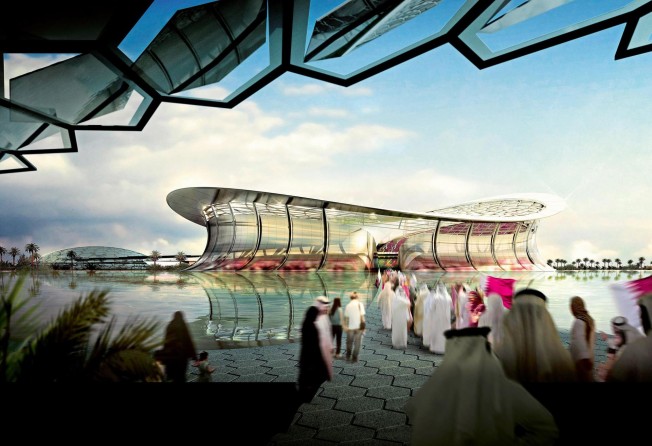
The North Korean forced labour building Doha's desert dream
Thousands from hermit nation being used as 'forced labour' in World Cup host Qatar, with Pyongyang taking 90pc of their earnings

As dusk falls on the luxury high-rise emerging from the swirling sands in the desert north of Doha, dozens of labourers hurry off the construction site and its surrounding buildings and on to buses waiting to take them back to their accommodation.

But late into the evening, after everyone else has left, one group of workers toil on, their efforts lit only by an occasional fluorescent tube light. The voices echoing around the site reveal their unlikely origin. These men are North Korean; an army of labourers from a tyrannical dictatorship, working on perhaps the most high-profile development in Qatar: Lusail City.
When completed, the metropolis will have two golf courses, an entertainment city, housing for 200,000 and a state-of-the-art 86,000-seat stadium that is set to host the 2022 World Cup final.
"They work constantly," said a manager of the lavish tower project, which employs about 50 North Koreans. "I have even built a room for them so they can rest without having to go back to their labour camp."
Despite the many hours they spend on the site, the North Koreans building the tower, and thousands more working on sites across Qatar, may receive as little as 10 per cent of their salary during the three years they typically work in Qatar.
Instead, their earnings are expropriated by a chain of North Korean state-run bodies, overseen by Office 39, a department said to bankroll Kim Jong-un's lifestyle.
Choi Yun-chul, a North Korean defector who now works for the North Korea Strategy Centre, said migrant workers received only 10-15 per cent of their salary. The majority goes into the pockets of government officials and the rest is passed on to the ruling Korean Worker's party.
"In the early '90s, workers did receive their salary but it has been stopped since the mid-90s," says Rin-il, who worked as a labourer in Kuwait until he defected in 1997 by walking into the South Korean embassy. "The construction company that employed workers sent all the money directly to the North Korean government's bank account."
Despite this, the conditions North Korean workers endure in Qatar are likely to constitute forced labour, a modern form of slavery, says Aidan McQuade, director of Anti-Slavery International. "The fact that these conditions may be viewed as preferable to life in North Korea does not negate the conclusion of forced labour," he says. "It is simply a further indictment of the dictatorship in Pyongyang, which exploits the vulnerability of its citizens to enrich itself in collusion with the Qatari autocracy."
Defectors' groups estimate there are up to 65,000 North Koreans working in around 40 countries. They can be found in forests in Siberia, mines in Mongolia, restaurants in China, factories in eastern Europe and, increasingly, on construction sites across the Gulf. There are an estimated 3,000 in Qatar, more than 2,000 in the United Arab Emirates and more than 4,000 in Kuwait.
Qatar's ministry of labour and social affairs said: "There are 2,800 North Korean guest workers registered in Qatar and we have no recorded complaints about their payment or treatment. Qatar is determined to continually improve labour conditions for all who work [here] and will continue to work with NGOs, businesses and other governments to achieve this."